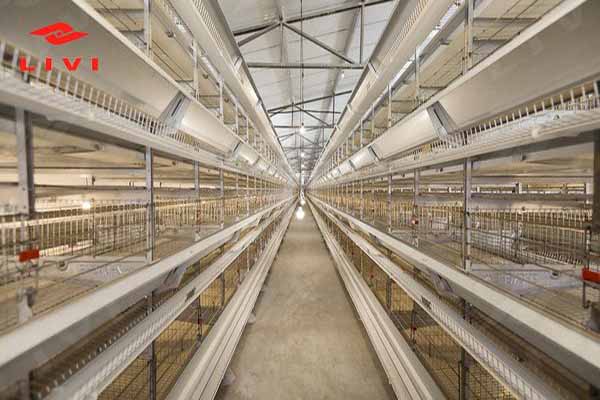Kenya Chicken Farm Registration Process: A Step-by-Step Guide
Time : 2025-04-27
If you’re thinking about starting a chicken farm in Kenya, you’ve come to the right place. One of the first things you’ll need to do is register your farm. This process might seem a bit daunting, but fear not! I’ve got you covered with a step-by-step guide to the Kenya chicken farm registration process. Let’s dive in!
Step 1: Understand the Requirements
Before you even think about registering your chicken farm, you need to know what the government expects from you. Here are the main requirements:
– Legal Entity: Your farm must be registered as a legal entity, whether it’s a sole proprietorship, partnership, or company.
– Physical Address: You need to have a physical address for your farm. It can’t just be a postal box or a shared address.
– Land Ownership or Lease: You must have legal rights to the land on which your farm is situated, whether it’s through ownership or a lease agreement.
– Zoning Compliance: Make sure your farm complies with local zoning laws.
– Health Certificates: Your farm must adhere to Kenya’s health standards for poultry.
Step 2: Choose a Legal Structure
The next step is to decide how you want to structure your farm legally. Here are the options:
– Sole Proprietorship: If you’re the sole owner and operator of the farm, this might be the simplest structure.
– Partnership: If you’re working with one or more partners, this structure allows you to share responsibilities and profits.
– Company: This is a more formal structure, which may be necessary if you’re seeking loans or investors.
Step 3: Register Your Farm
Once you’ve decided on your legal structure, it’s time to register. Here’s how to do it:
– Obtain the Necessary Forms: You’ll need the appropriate forms for your chosen legal structure. These can usually be downloaded from the Kenya Industrial Property Institute (KIPI) website or obtained from your local county office.
– Complete the Forms: Fill out all the required information accurately. Don’t rush through this step; it’s crucial for your registration to go smoothly.
– Submit the Forms: Take your completed forms to your local county office. You may need to pay a registration fee, so be prepared for that.
Step 4: Obtain a Business Permit
After your farm is registered, you’ll need a business permit. Here’s what you need to do:
– Contact Your Local County Government: Find out where to get a business permit in your area. The process can vary from one county to another.
– Provide Required Documents: You’ll likely need your farm registration certificate, proof of land ownership or lease, and any relevant health certificates.
– Pay the Fee: There will be a fee for the business permit. The amount varies, so be sure to check the current rates.
Step 5: Get a Veterinary Certificate
Kenya has strict regulations regarding animal health, and chicken farms are no exception. You’ll need a veterinary certificate to confirm that your farm is in compliance with health standards:
– Schedule an Inspection: Contact a government-approved veterinarian to schedule an inspection of your farm.
– Prepare for the Inspection: Make sure your farm is clean and all health protocols are in place.
– Obtain the Certificate: Once the inspection is complete and the veterinarian is satisfied, you’ll receive a veterinary certificate.
Step 6: Register with the Kenya Revenue Authority (KRA)
As a business, you’ll need to register with the KRA for tax purposes:
– Visit the KRA Office: Take your identification documents and business registration documents to your local KRA office.
– Fill Out the Tax Registration Form: Complete the tax registration form accurately.
– Pay the Registration Fee: There is a fee for tax registration, so be prepared to pay it.
Step 7: Stay Compliant
Once your chicken farm is registered, it’s crucial to stay compliant with all regulations. This means keeping up with:
– Health Regulations: Regular veterinary inspections and vaccinations for your chickens.
– Zoning Laws: Ensure your farm continues to comply with local zoning regulations.
– Business Permits: Renew your business permit annually.
Conclusion
The Kenya chicken farm registration process may seem complex, but with this step-by-step guide, you should feel more confident about navigating it. Remember to take your time, be thorough, and keep all necessary documents organized. Good luck with your new chicken farm!












